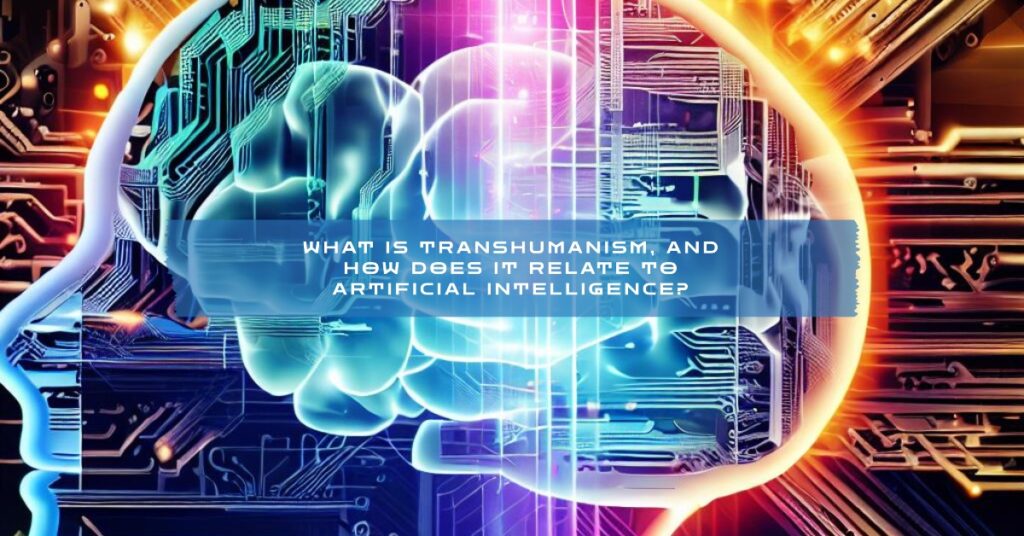Transhumanism: An Introduction to the Intersection of AI and Humanity
In recent years, there has been a lot of buzz around the concept of transhumanism, especially in the context of artificial intelligence (AI). While the term may sound intimidating at first, transhumanism is simply the idea that humans can use technology to enhance their physical and mental abilities beyond the limitations of biology. In this article, we will explore what transhumanism is, how it relates to AI, and the potential implications for society and the future of humanity.
What is Transhumanism?
Transhumanism is a philosophy that aims to use science and technology to transcend the limitations of the human body and mind. The term was first coined in the 1950s by Julian Huxley, a British biologist, and philosopher. At its core, transhumanism is about using technology to enhance human abilities beyond what nature has provided.
How Does Transhumanism Relate to AI?
Artificial intelligence is an essential part of transhumanism because it provides the tools necessary to enhance human abilities beyond the limitations of biology. AI can help humans in many ways, such as improving decision-making, automating tedious tasks, and even augmenting human creativity.
One of the most significant benefits of AI in the context of transhumanism is the ability to create brain-computer interfaces (BCIs). BCIs are devices that allow direct communication between the human brain and a computer. With BCIs, humans can control machines with their thoughts, allowing them to perform tasks that would be impossible without them.
Another way AI is helping to advance transhumanism is through the development of advanced prosthetics. Prosthetics have come a long way in recent years, with advancements in materials science and 3D printing technology. AI is also being used to create prosthetics that can interpret and respond to the user’s movements, making them feel more like a natural extension of the body.
Ethical Considerations
While the potential benefits of transhumanism and AI are undeniable, there are also ethical considerations that must be addressed. One of the most significant concerns is the potential for AI to become more intelligent than humans, also known as “superintelligence.”
If AI were to become superintelligent, it could pose a significant threat to human existence. As we have seen in science fiction movies, superintelligent AI could decide that humans are a threat to its existence and take actions to eradicate us.
Another concern is the potential for transhumanism to create a class divide between those who can afford to enhance themselves and those who cannot. This could lead to a society where only the wealthy can access the benefits of transhumanism, creating further inequality and social unrest.
The Future of Transhumanism and AI
As technology continues to evolve, so does the potential for transhumanism and AI. In the future, it is possible that humans will be able to enhance their abilities to such an extent that they become something more than human. They may be able to live longer, resist diseases, and even enhance their intelligence beyond what is currently possible.
At the same time, there are concerns about the future of humanity in a world where technology is advancing at an unprecedented rate. We must consider the potential implications of transhumanism and AI on society as a whole, including the potential for increased inequality, loss of privacy, and even the potential for catastrophic events such as a global artificial intelligence takeover.
Despite these concerns, many experts believe that the benefits of transhumanism and AI outweigh the risks. By enhancing human abilities, we can improve our quality of life, increase our productivity, and even save lives.
One potential benefit of transhumanism and AI is the ability to cure diseases and disabilities that were once considered incurable. With the help of AI, scientists and researchers can analyze vast amounts of data to develop new treatments and cures for diseases.
Another potential benefit is the ability to create more efficient and sustainable systems. AI can help optimize energy consumption, reduce waste, and even improve transportation systems, leading to a more sustainable future for humanity.
Conclusion
Transhumanism and AI are two areas of technology that are rapidly advancing and have the potential to transform the future of humanity. While there are certainly concerns about the ethical implications and risks associated with these technologies, the potential benefits cannot be ignored.
As we move forward into a world where technology continues to advance at an unprecedented rate, we must consider the potential implications of transhumanism and AI on society as a whole. It is essential that we address the ethical considerations and ensure that the benefits of these technologies are available to everyone, not just the wealthy or powerful.
Transhumanism and AI are not just buzzwords or science fiction concepts. They are very real and have the potential to impact our lives in profound ways. By embracing these technologies and ensuring that they are developed in a responsible and ethical manner, we can create a future where humans can live longer, healthier, and more fulfilling lives.

C M, a seasoned editor, journalist, and consultant, is deeply fascinated by the convergence of technology, space, and the future of humanity.
With a particular interest in transhumanism, futurology, and the philosophical and ethical dimensions of these domains, C M serves as the lead contributor to TranscendSphere and SpaceSpotlight.
When not penning insightful articles on these rapidly evolving fields, C M indulges in their love for podcasts and books, proudly embracing their status as a ‘Happy Nerd Extraordinaire!’





